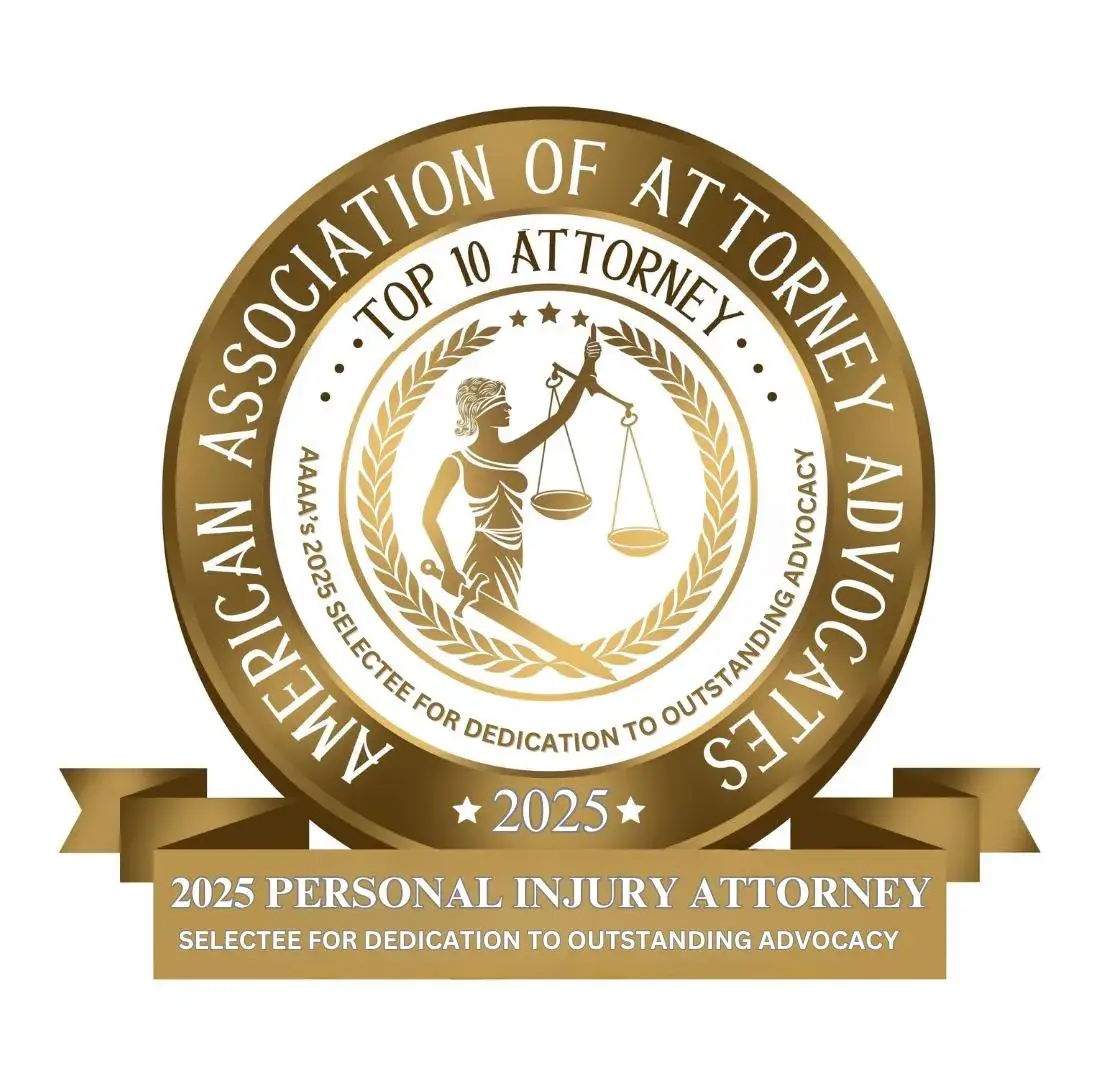
How Truck Driver Fatigue Leads to Trucking Accidents
Truck drivers are professionals, held to a higher standard and entrusted with operating 80-thousand-pound machines on the same roads our families travel every day. Accidents of this magnitude feel like they shouldn’t be possible. Yet, they happen with devastating frequency on our local highways like I-95, I-80, and the New Jersey Turnpike.
While many factors can contribute to a truck crash, one of the most common, and most preventable, is a silent danger that creeps into the driver’s cab: fatigue.
This isn’t just a case of feeling sleepy. It’s a profound state of impairment that federal investigators cite as a contributing factor in up to 40% of all large truck accidents. For the everyday commuters in communities from Fort Lee to Hackensack, it’s a silent danger that can turn a routine drive into a life-altering event in a matter of seconds.
What Is Truck Driver Fatigue? It’s More Than Just Being Tired.
We’ve all felt tired. After a long day of work, a sleepless night with a sick child, or the stress of a big project, we know what it means to feel worn out. But truck driver fatigue is a different state of being.
Think of it as a complete system overload. It is a dangerous combination of physical, mental, and emotional exhaustion that degrades a driver’s ability to perform their duties safely. It slows their reaction time, clouds their judgment, and dulls their awareness. When a driver is fatigued, they are not just tired; they are functionally impaired.
The National Transportation Safety Board (NTSB) has cited fatigue as a probable cause or contributing factor in as many as 20-40% of all large truck crashes. For the person whose life is forever changed by one of these crashes, it is a catastrophic failure that could and should have been prevented.
The Pressures Behind the Wheel: Why Are Truck Drivers So Exhausted?
To understand how a driver can become so dangerously fatigued, you have to look beyond the driver’s seat and see the immense pressures they face. They are often caught in a system that prioritizes speed and profit over safety.
The Clock is Always Ticking: Hours-of-Service (HOS) Rules

To combat fatigue, the Federal Motor Carrier Safety Administration (FMCSA) has established strict Hours-of-Service (HOS) regulations. These rules dictate the maximum number of hours a driver can be on the road, when they must take breaks, and how much time they must have off-duty to rest.
In theory, these rules should work. In practice, they are often pushed to the limit or outright violated. A driver might be legally allowed to drive for 11 hours in a 14-hour window, but that doesn’t account for the time spent waiting at a loading dock, navigating heavy city traffic, or dealing with unexpected delays.
The clock keeps ticking, and the pressure mounts. To make a deadline, some drivers feel forced to falsify their logbooks or drive when they know they are too tired to be safe.
The Economic Squeeze: The Pressure to “Make Miles”
Many truck drivers are not paid by the hour; they are paid by the mile. This creates a powerful and dangerous incentive: if the wheels aren’t turning, they aren’t earning. A delay at a warehouse in Teterboro or getting stuck in traffic near the GWB doesn’t just waste time—it costs them money.
This pay structure can compel a driver to push through exhaustion, skip necessary breaks, and drive faster than is safe, all in an effort to make up for lost time and earn a living wage for their family. They are financially penalized for resting, creating a direct conflict between their personal safety (and yours) and their paycheck.
Unrealistic Demands from Dispatch and Trucking Companies
Drivers don’t operate in a vacuum. They answer to dispatchers and managers at their trucking company. These companies are often under their own pressure from clients to deliver goods as quickly as possible. This pressure is then passed down to the driver in the form of tight, often unrealistic, delivery schedules.
A driver might be told to get a load from a depot in South Hackensack to its destination hundreds of miles away in a timeframe that leaves little room for traffic, weather, or adequate rest. Fearing for their job, a driver may feel they have no choice but to comply, even if it means driving while dangerously fatigued.
The Nationwide Crisis of Safe Parking
Imagine working a grueling 11-hour day and then having nowhere safe to rest. This is the reality for countless truck drivers every single night. There is a severe, nationwide shortage of safe and available truck parking. When a driver’s hours are up, they may spend an hour or more searching for a legal place to stop. Often, they are forced to park on the unsafe shoulders of highways or on-ramps, where their sleep is poor and the risk of being struck by another vehicle is high. This lack of restorative sleep accumulates day after day, leading to chronic fatigue.
Underlying Health Conditions
The sedentary lifestyle of a long-haul truck driver can contribute to health problems that exacerbate fatigue, with obstructive sleep apnea being one of the most common and dangerous. This condition causes a person to stop breathing repeatedly during sleep, preventing them from ever reaching the deep, restorative stages of rest. A driver with untreated sleep apnea can be chronically sleep-deprived, no matter how many hours they are off-duty.
How Fatigue Turns a Heavy Truck into a Danger on the Road
When a driver gets behind the wheel while fatigued, their brain and body simply cannot perform the complex tasks required for safe driving. The consequences are terrifyingly predictable.
- Delayed Reactions and Slowed Reflexes: A healthy, alert driver needs about 1.5 seconds to perceive a hazard and react. A fatigued driver’s reaction time can easily double. On a highway, that extra second or two can be the difference between a safe stop and a catastrophic rear-end collision. Whether you were on Route 17 in Lodi or the Palisades Parkway near Englewood Cliffs, that split-second delay can change your life forever.
- Impaired Judgment and Poor Decision-Making: Fatigue clouds the part of the brain responsible for executive function. A tired driver is more likely to misjudge the speed of other vehicles, follow too closely, drift out of their lane, or take a turn too quickly. They lose the ability to make the hundreds of small, critical decisions that safe driving requires.
- The Terrifying Reality of Microsleeps: One of the most frightening effects of severe fatigue is the “microsleep.” This is an involuntary episode of sleep that can last from a fraction of a second to ten full seconds. To the driver, it may feel like they just blinked. But in those few seconds, a truck traveling at 65 miles per hour can cover the length of a football field or more—completely out of control. It’s a terrifying thought for anyone who shares the road with these massive vehicles.
- Loss of Situational Awareness: Fatigue leads to a kind of tunnel vision. A driver may stare straight ahead but fail to process what is happening in their peripheral vision. They may not notice a car merging into their lane or see brake lights ahead until it is far too late. This “highway hypnosis” makes them a passive, unresponsive operator of a machine that demands constant, active attention.
Life After the Truck Crash

The consequences of a fatigued driver’s actions don’t end at the crash scene. For you and your family, the impact is just beginning.
The physical injuries can be severe and life-altering: traumatic brain injuries, spinal cord damage, broken bones, and internal organ damage. The road to recovery is often long, painful, and filled with surgeries, physical therapy, and endless doctor’s appointments.
The emotional and psychological trauma is just as profound. You may be struggling with anxiety, depression, or post-traumatic stress disorder (PTSD). The simple act of getting into a car can become a source of intense fear. The sounds of traffic on a busy street in Hackensack or Fort Lee might trigger flashbacks to the accident.
And then there is the financial devastation. Medical bills pile up at an alarming rate while you are unable to work. You worry about how you will pay your mortgage or rent, how you will support your family, and whether your life will ever return to normal. This is a heavy burden to carry, especially when you are trying to heal.
This isn’t just an abstract problem; it’s a daily reality for families in the diverse, hard-working communities of Teaneck, Englewood, Palisades Park, and all across our region who have been hurt by someone else’s negligence.
How Our Lawyers Prove Driver Fatigue
If you suspect fatigue caused your accident, you might wonder how it could ever be proven. A driver is unlikely to admit they were falling asleep at the wheel. This is where a deep investigation becomes critical. Proving fatigue isn’t about one single piece of evidence; it’s about piecing together a comprehensive picture of the driver’s actions, the trucking company’s practices, and the events leading up to the crash.
This involves gathering and analyzing crucial information, such as:
- Electronic Logging Devices (ELDs): Most modern trucks are equipped with ELDs that automatically record driving time, replacing old paper logs. This data can reveal HOS violations and show if a driver was pushing their legal limits.
- The Truck’s “Black Box”: The Electronic Control Module (ECM) in a truck records critical data like vehicle speed, braking, and steering inputs in the seconds before a crash. This can show a lack of driver response consistent with fatigue or a microsleep.
- Driver and Dispatch Communications: Text messages, emails, and dispatch records can reveal a pattern of pressure from the company, showing unrealistic schedules or a driver complaining of being tired.
- Receipts and Toll Records: Fuel, food, and toll receipts can be used to create a timeline of the driver’s trip, which can then be compared against their logbooks to uncover discrepancies and falsifications.
- Post-Accident Driver Interviews and Witness Statements: Thorough interviews can reveal inconsistencies in the driver’s story and uncover witnesses who may have seen the truck driving erratically before the crash.
Building a case based on fatigue requires experience, resources, and an unwavering commitment to finding the truth. The trucking company and its insurance carrier will have a team of experts working immediately to protect their interests. You deserve to have a team of dedicated advocates on your side, too.
Finding Your Path to Justice with Maggiano, DiGirolamo & Lizzi
If you or a loved one has been injured in a trucking accident, we know you are feeling stressed, frightened, and uncertain about the future. The physical pain is immense, the medical bills are mounting, and the emotional toll is heavy. Please know, you do not have to walk this path by yourself.
At Maggiano, DiGirolamo & Lizzi, we understand what you are going through. For decades, our firm has been defined by courage, driven by justice, and inspired by our clients—people just like you. We represent the person next door who has had their life torn apart by a preventable accident.

We are a team of more than 30 dedicated professionals, and when you become our client, you are not just a case file; you are a person with a unique story. We make it our mission to stand in your shoes, to learn everything about how this injury has impacted your life so we can ensure you are heard. Claims involving truck accidents are a primary focus of our firm because we know how complex they are and how much is at stake.
There is no case too challenging and no case too small. Your pain is real, your losses are significant, and you deserve justice. Let us help you carry the burden. Contact Maggiano, DiGirolamo & Lizzi today at (201) 585-9111 or through our online form for a free, confidential consultation. Our truck accident lawyers are here to listen, to guide you, and to fight for the compensation you need to heal and rebuild your life.



















